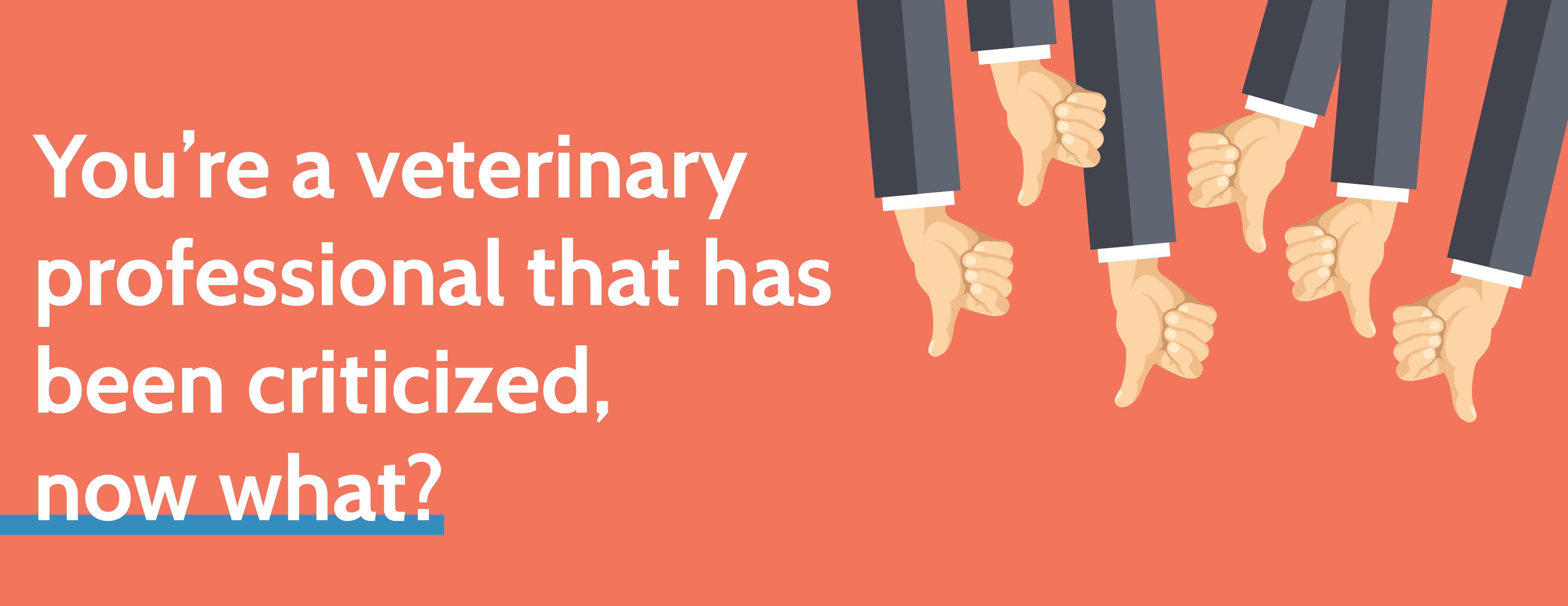
It is extremely likely that, at some point during your veterinary career, you have been exposed to client criticism. You may have seen it as a pre-veterinary student working as an assistant or as a veterinary student on clinics. It is also likely you will be exposed to client criticism as a veterinarian.
The difference is that, as a veterinarian, it will feel more personal since you are a decision maker and responsible for the care the owners want their pet to receive. Despite your best efforts, there are just some things you cannot avoid in veterinary medicine - and client criticism is one of them. It’s important to arm yourself with knowledge about strategies to deal with these situations.
First of all, it’s important to remember that sometimes, the root of client criticism is not anything you or your staff did wrong medically. Clients can be upset, unhappy or difficult for a number of reasons that may be completely unrelated to you. In the past, criticism was communicated either in person on the phone. For either medium, listening is a key strategy. Dr. Carin Smith who is the owner of the Washington-based consulting firm, Smith Veterinary Services, explains the importance of listening, stating that, “No one will listen to you until you listen to them." (1)

Dr. Lauren Smith offers the following strategy for dealing with difficult clients: complementarity. This is the concept that people tend to mirror the other person’s behavior. She states, “doing the unexpected [reacting to an irate client with kind words and a smile], naturally enocurage[s] the client to the same.” (6)
Like so many other scenarios in veterinary medicine, your team is your first line of defense and perhaps more importantly, your first line of support. So, in addition to listening effectively and practicing complementarity, another helpful strategy is to make sure staff members understand how to deal with client criticism. It is advisable for staff members to listen carefully and convey the client’s concerns to the appropriate individual. In some hospitals, this person may be the veterinarian and in others, it may be the hospital director. Make sure your support staff know the protocol at your clinic so client concerns are addressed efficiently and in a timely manner.
The age of technology has increased the number and types of channels for clients to communicate their criticisms. The internet has drastically affected how we interact and its changed how people do business. Just like practicing good medicine does not guarantee that people will not criticize you, having good business practices also will not exclude your practice from client criticism.(3)
It has been stated that, “online search and social media have revolutionized how we look at reputation. “Word of mouth” is now immediate and knows no borders, the skeletons in your closet are on Page One of Google search, and even a single upset individual can wreak havoc on your business – unless you catch the problem early and do something about it.” (4)

Monitoring and surveillance of the digital landscape is the first important strategy for how to deal with internet-based client criticism. The next step is to respond, if responding is the next best and most appropriate step since “our response to negative reviews can make or break your opportunity to attract new clients.” The AVMA has great strategies for how to navigate responding - Resources for responding to negative reviews and social media. (2)

Another great tool is to consider professional help for online reputation management from companies such as Bernstein Crisis Management.
As a veterinarian, you will already have a lot on your plate to deal with, so it’s important to keep in mind that there are strategies, resources experts that can help you navigate difficult situations regarding client criticism.
References:
1. Cantrell, Mark. Staff Matters: Dealing with Difficult Clients. Veterinary Practice News.
3. Online Reputation Management. AVMA.
4. Online reputation management. Bernstein Crisis Management.
6. The Secret to Dealing with Difficult Clients. Dr. Andy Roark.


